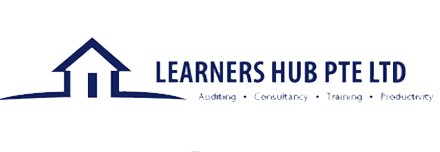Prioritizing Workplace Safety:
The Importance of WSH Practices and How bizSAFE Can Help
Prioritizing WSH Year-Round: Why Strong Safety Practices and bizSAFE Certification are Essential as We Approach Year-End
As the year draws to a close, meeting project deadlines often becomes more intense, especially in high-risk sectors. However, pushing towards goals should not compromise safety. According to the Ministry of Manpower (MOM), Singapore recorded 19 workplace fatalities in the first half of 2024, resulting in an annualized fatal injury rate of 1.0 per 100,000 workers. Although this is consistent with the rate of 0.99 in the latter half of 2023, Singapore’s current safety record is still higher than its WSH 2028 target of less than 1.0 per 100,000 workers, emphasizing the need for heightened workplace safety vigilance.


Image Source: Ministry of Manpower, Workplace Safety and Health Report January – June 2024, WORKPLACE FATAL INJURIES
In comparison with global standards, Singapore’s three-year average fatal injury rate of 1.1 per 100,000 workers places it higher than countries like the Netherlands and the United Kingdom, both at 0.4, and Sweden at 0.7. This comparison highlights Singapore’s need to adopt stronger risk management practices to align with international benchmarks.

Source: Ministry of Manpower, Workplace Safety and Health Report January – June 2024
The Vital Role of WSH Practices in Protecting Workers
Each work environment presents unique risks — from physical hazards in construction to ergonomic challenges in office settings. Effective Workplace Safety and Health (WSH) practices involve proactive risk identification, training, clear communication, and policies that promote a shared sense of safety responsibility.
The Ministry of Manpower’s findings underscore a key issue: many workplace injuries occur when risk management systems are either poorly implemented or inconsistently followed. Having a documented risk management plan is only part of the equation; companies need to ensure that it is executed effectively. This includes empowering workers with the necessary information and resources to safely carry out their tasks and creating an environment where employees feel comfortable reporting potential hazards.
Strengthening Safety Practices with bizSAFE
Programs like bizSAFE provide a structured approach to fostering a resilient safety culture. Progressing through the bizSAFE levels strengthens WSH capabilities, enabling safety practices to adapt and grow with the business.
- bizSAFE Level 1: Business leaders gain insights into WSH fundamentals, setting a strong foundation and instilling a culture of safety from the top down.
- bizSAFE Level 2: At this level, business leaders are introduced to WSH fundamentals, laying the groundwork for a strong safety culture from the top down. Leaders can support safety by regularly checking in on safety procedures, allocating resources, and promoting open discussions on WSH practices; and set a positive example.
- bizSAFE Level 4: By this stage, companies establish a full Workplace Safety and Health Management System (WSHMS), integrating safety measures into daily operations. This includes regular monitoring, safety assessments, employee feedback sessions, and incident reporting protocols to ensure continuous improvement.
bizSAFE certification isn't just about meeting standards — it’s a framework that helps organizations create and maintain a sustainable, effective safety culture. This proactive approach is particularly valuable during high-stress times like year-end, when companies are working hard to complete projects.
Empowering Employees to Stay Safe
With the year-end rush, it’s especially important to remind employees of the value of following safe work procedures and avoiding shortcuts. Regular “safety refreshers” or “toolbox talks” can provide quick updates on safety protocols and offer employees a space to discuss any recent challenges. By encouraging employees to report unsafe conditions and recognizing safe behaviours, organizations can nurture a culture where everyone actively contributes to safety.
Open communication is essential to a healthy WSH culture. Employees should feel comfortable reporting potential hazards, knowing that their input is valued and contributes to a safer environment. By focusing on safety discussions and ongoing training, companies can prevent small oversights from becoming serious incidents.
Ending the Year on a Safe Note
As we approach the holiday season, let’s keep our focus on creating safe work environments. Programs like bizSAFE and resources such as StartSAFE offer companies practical steps to enhance their safety practices. By fostering a culture of safety, providing employees with essential training, and reinforcing WSH protocols year-round, we can ensure that every employee returns home safely each day.
Safety is not just a year-end priority; it’s a continuous commitment to health, productivity, and well-being. This festive season, let’s pledge to maintain strong WSH practices so we can all start the new year on a safe and positive note.
Quick Links to Safety Resources
Enrol in bizSAFE or StartSAFE Programs: https://www.tal.sg/wshc/programmes
Explore WSH Articles and Guidelines: https://www.tal.sg/wshc/resources
WSH Annoucement - Call for WSH Vigilance As End of 2024 Beckons: https://www.tal.sg/wshc/media/announcements/2024/call-for-wsh-vigilance-as-end-of-2024-beckons
Workplace Safety and Health Report January - June 2024: https://www.mom.gov.sg/-/media/mom/documents/safety-health/reports-stats/wsh-national-statistics/wsh-national-stats-2024.pdf
Ready to Take the Next Step?
If you're serious about creating a safer work environment and boosting your company's competitiveness, bizSAFE is the way forward. Whether you're starting at Level 1 or aiming for bizSAFE STAR, our courses and workshops will guide you through each stage of the process.
Contact us today to find out how we can help your business become bizSAFE-certified!



